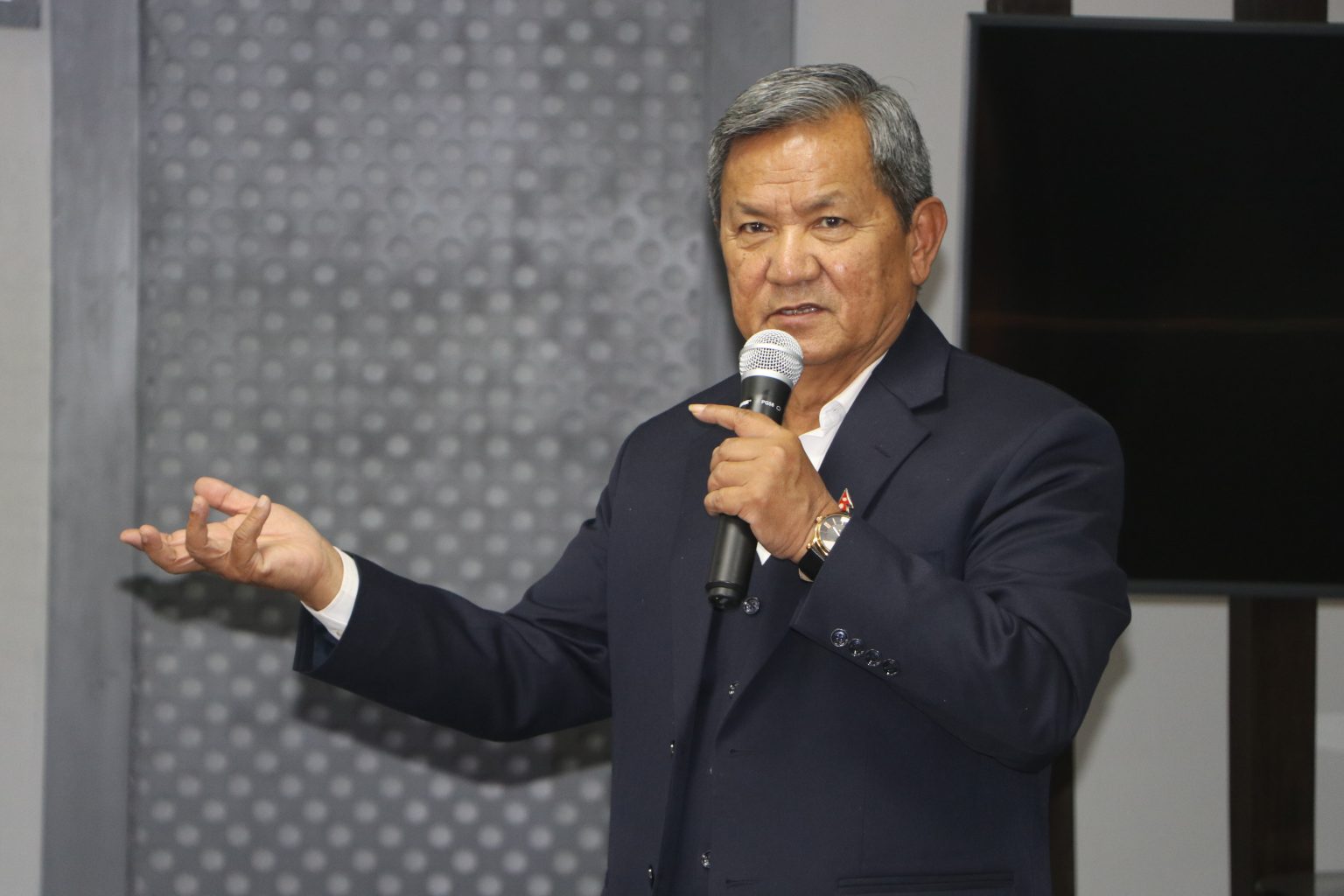Kathmandu: Minister for Communications and Information Technology Prithvi Subba Gurung has said that the ‘digital divide’ has become a very serious problem all over the world, and ways to reduce it a matter of concern for everyone.
Sharing experience of his participation, in four international conferences on IT and related issues held in the recent past in Nepal, Japan, Switzerland and China, with RSS Sub-editor Madhu Shahi, Minister Gurung said as digital divide is also an issue linked with the Sustainable Development Goals no one should be left without access to the internet and information technology, Stating that physical infrastructure is necessary for the development of the information technology sector in Nepal, Minister Gurung said he has called for investment from countries and organisations alike taking part in those conferences.
“We also lack skilled human resources in IT sector, including those required to form a research group to start the ‘5G’ network,” he said. Therefore, I have called for support for the development of the information technology sector in Nepal at all the international conferences and meetings I have attended.
Urging for support in the establishment of a data center in the cold areas around the mid-hill highway of Nepal, during the conferences Minister Gurung argued that it would be appropriate to establish a data center in such elevation since there is no need to use additional electricity for cooling.
“If this happens, Nepal can develop as a ‘hub’ of information technology,” he added. Sharing that Nepal has started a digital literacy campaign in 35,000 secondary schools in the country, Minister Gurung said he has urged international organizations such as International Telecommunications Union to support the campaign.
As access to the Internet has now been established as a human right, Nepal is also continuously waging a campaign to increase internet access to every citizen in the country. Stating that he spoke about Nepal’s efforts to have its own satellites during the ITU conference in Geneva, Minister Gurung shared that all the required basic and policy aspects for satellites will be developed this year.
“We have also obtained a satellite orbital slot that matches the latitude and longitude of Nepal.” The Minister who represented Nepal in the recent ‘World AI Conference 2025: High-Level Meeting on Global AI Governance’ held in Shanghai of China said that Nepal’s participation was highly recognized during the event where Chinese Premier Li Qiang put his comprehensive and valuable statements on the use of AI, its development and innovation.
As the Minister said, China has suggested about the possibility of an ‘unilateral’ use of AI by specific countries, further leading an increased gap between the rich and poor nations, a major hurdle to sustainable economic development and its stability.
During the event, the Chinese Premier echoed the need of a coordinating development mechanism for AI innovation and its implementation to prove that ” AI is for All’. As the Minister, he realised that such approach is capable of directly benefiting Nepal like country when Nepal prioritised the implementation of the Digital Nepal Framework.
This framework has proposed to use AI for agriculture, health, tourism, agriculture, environment, industries as well as disaster management, he added. The Minister shared with the Conference that e-governance, the establishment of data center and the knowledge park are priorities of Nepal.
As the Minister said, through China’s journey towards innovative prosperity, it has been proved that IT is a major basis for nation’s development. He said, “Nepal could learn from China that visionary government and leadership are essential for development,” adding that a stable, competent, and efficient bureaucracy is equally necessary for any nation to transform into a prosperous and well-governed country.
He also acknowledged that Nepal is far behind of China in terms of IT innovation and its use. As a result, the Ministry of Communications and Information Technology has been drafting the AI policy and it has planned to conclude the drafting all relevant laws, acts and policies within the current fiscal year.
Speaking about government initiatives aimed at developing Nepal as an ‘IT Hub,’ he said that the government has prioritized infrastructure development, a pre-requisite to achieve this goal. He also highlighted the importance of having a stable government, similar to that of China, to successfully realize any long-term development vision.
Talking about the significance of the Government Integrated Office Management System (GIOMS) for achieving e-governance, the Minister argued, “We have failed to make significant progress in development due to our tendency to limit ourselves to small goals.”
As he said, offices at all levels from federal to local have been urged to connect with the GIOMS. He also encouraged adopting ambitious plans without hesitation. “Uniformity across our official websites is essential. We have planned to implement the GIOMS campaign nationwide.
If successfully executed, it will mark a significant achievement in maintaining governance, delivering public services promptly, and increasing revenue collection,” the Minister concludes.
During the recent past, CIT Minister Gurung attended the 34th APTT Wireless Group (AWP-34) hosted by the Asia Pacific Telecommunity (APT) from March 31 to April 4 in Kathmandu, the Asia-Pacific Telecommunication Ministerial Meeting (APT-MM 2025) in Tokyo, Japan on May 29, 30, and 31, the ‘World Summit on the Information Society (WSIS) Plus 20 High-Level Event 2025’ held in Geneva, Switzerland from 7-11 July 2025 and the ‘World AI Conference and High-Level Meeting on Global AI Governance’ 2025 held on July 26 in Shanghai, China.
– RSS
